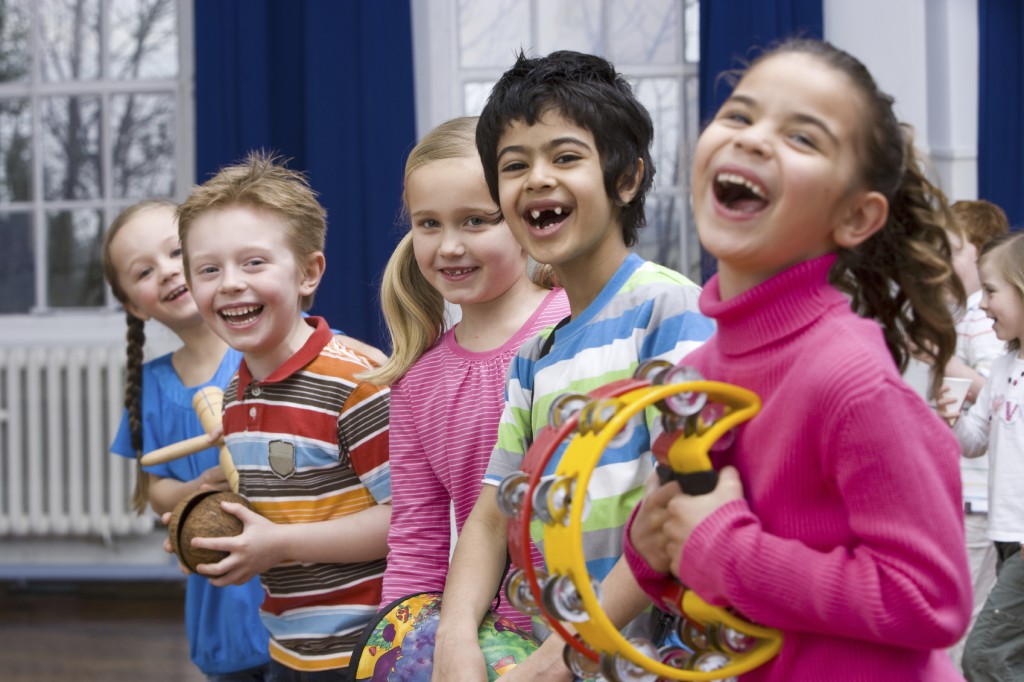
The Benefits of Music Education
Studies have proven the countless benefits of music education. It appeals to multiple types of learners, is cross-curricular, and has been linked to gains in everything from language development, to pattern recognition, and even improved test scores.![]()
We all have memories inexplicably tied to music, sometimes it takes just a single melody to remember an entire summer, or the first note from the theme song of a TV show can send you back in time to a Saturday morning 30 years ago. Music has an amazing way of working itself into our memories and if you’re a teacher, or even a parent, you’ve used some sort of “sing song” verse to get your point across. Is it a parlor trick though, useful for only cursory amounts of information, or is it a legitimate tool that actually works?
Time and time again researchers have lauded the impact music education can have on the mind of a young learner. It’s been linked to increased language acquisition and heightened development in young learners. It can help with pattern recognition and even cognitive development, building the brain itself. Researchers have even studied the impact of learning an instrument and found that music education can set off “fireworks” in the brain, completely altering the way you process and store information. Learn more here with this quick TED talk.
Is Music For Everyone?
While studies have shown schools that implementing a “competent musical program” have seen jumps in both English and Math test scores by as much as +30%, does this mean music is a magic bullet? What if you can’t run a “competent music program” or worse, don’t have a music program at all? I mean, music education is different from music integration right? Absolutely, but you don’t need to be a Beethoven to see benefits in your classroom. Even if you don’t have a lick of musical talent you can still reap some of the benefits. Think of music as a tool to enhance your lessons, it’s accessibility and versatility mean that it appeals to a whole range of learners; ones a traditional lesson might not reach. Use a song as a hook at the beginning of your lesson to engage learners, or lyrics to illustrate examples of figurative language. These are great way to compliment your lesson and reinforce important concepts and ideas.
Heart and Soul
The famous piano piece from the movie BIG, is called entitled “Heart and Soul” and as it turns out, music can be great for that stuff too! The National Association for Music Education (NAfME) praises music’s ability to increase empathy, social emotional awareness, increase self esteem, and decrease anxiety. I know in the era of high stakes testing that teachers could use some decreased anxiety as well. It is a phenomenal way to expose learners of any age to other cultures and can even cross language barriers. Music can help students understand different perspectives and even be used to discuss difficult topics like the holocaust and slavery. Dr. Eric Rasmussen, chair of the Early Childhood Music Department at Johns Hopkins University, says that music in schools helps to “give you have a better understanding of yourself. The horizons are higher when you are involved in music,” he adds. “Your understanding of art and the world, and how you can think and express yourself, are enhanced.” (1)
So the next time you’re looking for a way to improve your lessons and inspire your students, think about using music. The benefits of music in the classroom are endless and the only thing preventing it from being part of your everyday curriculum is you! Start integrating music and start the transformation today!
—–
Sources:
1 http://www.pbs.org/parents/education/music-arts/the-benefits-of-music-education/
2 http://www.vh1savethemusic.org/sites/default/files/BenefitsofMusicEd%20(1)_1.pdf
3 http://www.nafme.org/20-important-benefits-of-music-in-our-schools/
4 https://www.youtube.com/watch?v=R0JKCYZ8hng